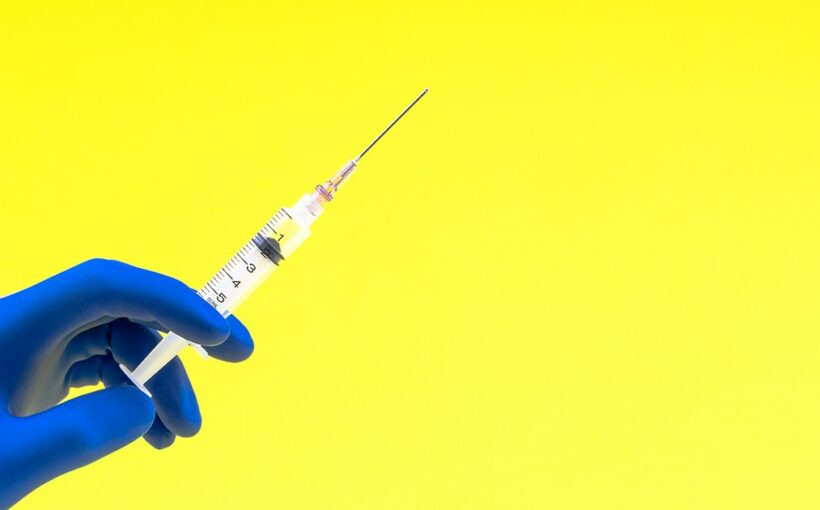LISTEN TO ARTICLE
SHARE THIS ARTICLE
Vaccines fromPfizer Inc.,Moderna Inc., and others will have the power to one day end the pandemic, or at least tame it—but only after 70% or more of the world’s population gets inoculated against Covid-19. So far, the rollout has beenanything but smooth: By mid-January just 13 million Americanshad received a dose, far short of the Trump administration’s projections. At that rate, it could take until 2022 before the country gets back to normal.
Big drugstores saythey’re ready to come to the rescue. They won’t eliminate the need for stadiums and other mass inoculation sites, but chains such asCVS Health Corp. andWalgreens Boots Alliance Inc. have the advantage of being everywhere. There are 60,000 pharmacies spread across the U.S., including drugstores within big-box stores such asWalmart and major grocery chains as well as independents and local chains. Many have experience providing vaccines: U.S. pharmacies gave out about a third of adult flu shots in 2018, up from just 18% in 2012. President Joe Biden’s ambitious$20 billion plan to reboot the troubled vaccine distribution rollout to deliver on his pledge of 100 million shots in 100 days will rely, in part, on drugstores. “We are going to fully activate the pharmacies across the country,” Bidensaid on Jan. 15.
Last fall, the U.S. government created a partnership with about 40,000 pharmacies from 19 chains and networks to help administer the coronavirus vaccine. These include CVS, Walgreens,Rite Aid, Walmart,Costco, and most major grocery store chains. CVS, which has almost 10,000 locations, has been preparing for the rollout since the summer. “We are ready to go,” says Chris Cox, CVS’s senior vice president for pharmacy. The chain has hired 10,000 pharmacy technicians, pharmacists, and nurses to help with Covid vaccines and testing and so far has trained 12,000 technicians to administer shots.
Walgreens, meanwhile, has more than 9,000 stores and “will be ready to administer any and all” of the vaccines, says Rick Gates, senior vice president for pharmacy and health care. Getting a Covid vaccine will be “very similar to what you see from a flu clinic,” says Gates, with the difference that shots will be scheduled in advance. CVS says it will be able to administer 30 million shots a month. Walgreens has the capacity to give up to 25 million.
Still, don’t expect miracles. The two chains were tapped to vaccinate nursing home residents across the country. Some local officials have criticized the program for moving too slowly.
Excluding those unwilling to get shots, as well as health-care workers and nursing home residents who’ve already received them, about 170 million American adults need a vaccine, Jefferies Group LLC analyst Brian Tanquilut estimates. Retail pharmacies, he says, could capture as much as 50% of that business.
Independent community pharmacies will play an important part in the rollout as well. There are 21,000 mom and pop outlets and small chains, many of them in smaller towns and rural areas. In West Virginia, which has had one of the most successful vaccine rollouts, independent drugstores have been involved from the start. And in Louisiana, about half the pharmacies administering shots are independents, according to Joseph Kanter, a state public health official.
“Community pharmacies are a force multiplier,” says Brian Caswell, president of the National Community Pharmacists Association.
To prevent crowding, most big pharmacies plan to use an appointment-only system for Covid shots, says Kathleen Jaeger, senior vice president for pharmacy care at the National Association of Chain Drug Stores, a trade association. The group estimates its members can administer 100 million vaccine doses a month, surpassing the Biden administration’s goal. Pharmacy chains already have a well-developed network of websites and phone apps to manage online contact lists for their prescription drug business. CVS will have an app and a dedicated 800 number people can use to sign up for both their first and second vaccine shots at once.
Most Walgreens locations boast private rooms where pharmacists can inoculate customers, Gates says. CVS has exam rooms in almost 1,100 stores with MinuteClinics; elsewhere, it will use old photo labs or even fitting rooms inside the Target stores where it operates pharmacies, Cox says.
Originally, the plan was to wait until so-called Phase 2 of the vaccine rollout—mass vaccination of all adults—before turning to pharmacies on a huge scale. But drugstores have been pushing to open up the program sooner, and CVS and Walgreens say their programs could start by late January or early February. The program will be rolled out to a limited number of stores in each state at first, according to the Centers for Disease Control and Prevention, as there won’t be enough vaccine supply to involve all pharmacies that have signed up from the get-go.
The chains have a financial incentive to get those supplies into people’s arms. Under the federal Medicare program for older Americans, vaccine providers will receive $16.94 for the first dose of a two-shot regimen and $28.39 for the second shot. Even if pharmacies administered just 30% of the shots, CVS could earn $490 million in gross profit this year from Covid shots, while Walgreens could earn $445 million, Tanquilut says.
Pharmacies will have to develop backup plans and standby lists to deal with the inevitable glitches, such as no-shows or late-arriving vaccine shipments. Rite Aid Corp. Chief Executive Officer Heyward Donigan expects the rollout to remain messy for some time. “It’s going to be pretty chaotic for the next few weeks,” she says, “as people try to maneuver through this.”
Read next:The U.S. Needs More Covid Testing, and Minnesota Has Found a Way
Source: Read Full Article
